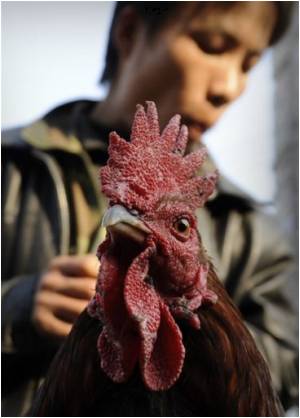Mutations that increase the infectivity of H5N1 and H7N9 viruses through improved binding to receptors in the human respiratory tract is identified by two new studies.

"Avian influenza viruses evolve rapidly, and there are many subtypes of these viruses that we need to be concerned about because, in many cases, humans do not have immunity to these newer strains," said senior study author Ram Sasisekharan of the Singapore-MIT Alliance for Research and Technology.
"Our findings can be put to use to monitor the evolution of H5N1 and H7N9 viruses in the field as well as in the clinic if and when there is an outbreak," he added.
In the past 10 years, the H5N1 virus has infected nearly 600 individuals in several outbreaks around the world, killing about 60 percent of those infected. And over the past few months, a lethal subtype of the H7N9 virus has been found in at least 131 people, mostly in mainland China.
Although these viruses do not normally infect humans, over time they can adapt to humans and gain the ability to spread more easily from person to person, underscoring the importance of finding out which mutations could enhance the ability of these viruses to infect humans.
To address this question, Sasisekharan and his team analyzed the structure of the H5N1 and H7N9 viruses, focusing on hemagglutinin (HA)-a type of viral protein that binds to cell receptors in the respiratory tract of hosts.
Advertisement
Moreover, they found that distinct HA mutations are evolving in the H7N9 virus indicating that currently recommended H7 vaccines would not be effective against this newly emerged virus.
Advertisement
The studies were published by Cell Press in the journal Cell.
Source-ANI









